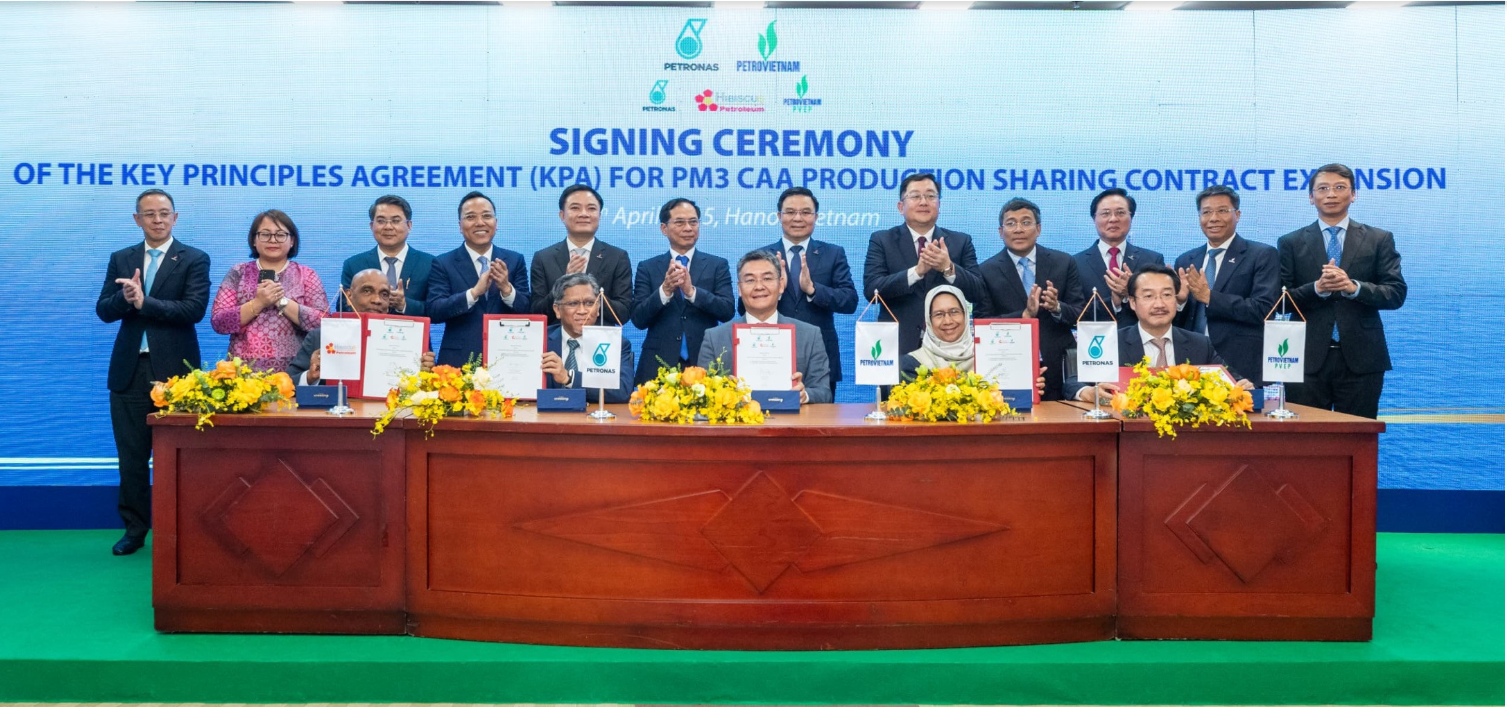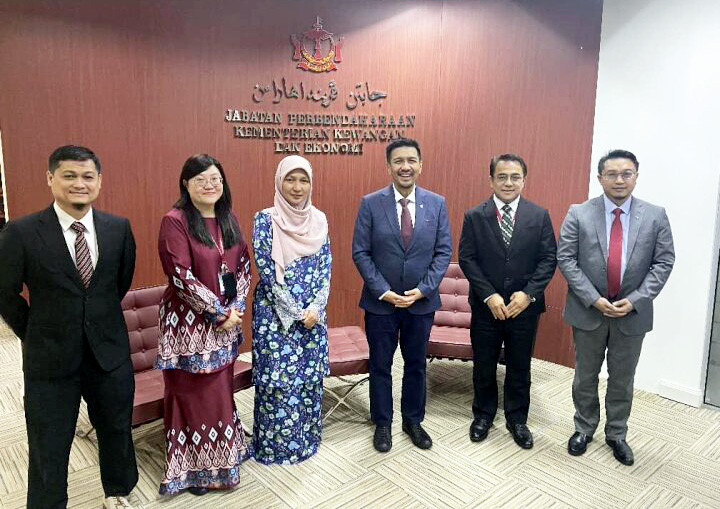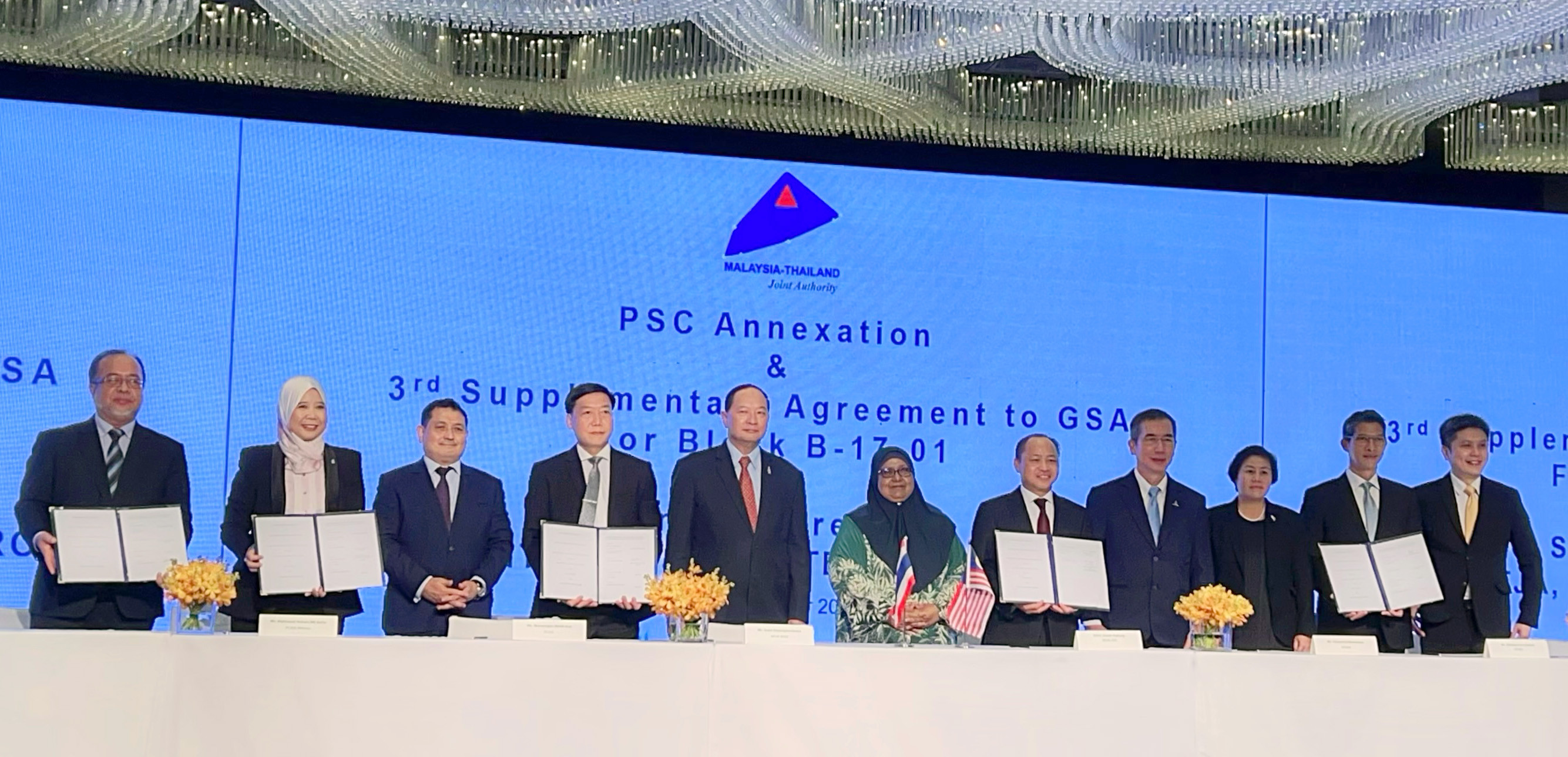
Beyond Borders: Advancing Regional Prosperity Together
The ASEAN summit, held recently, concluded on a high note, reaffirming the region’s commitment to inclusivity and sustainability. With calls for stronger regional cooperation, deeper economic partnerships and collective action on pressing issues like climate change and energy security, the summit laid the foundation for a future that is both clearer and cleaner. This vision of shared progress has long been embraced by PETRONAS, which has fostered collaboration and built enduring partnerships across Southeast Asia to advance prosperity, harmony and mutual respect over the decades.
As a trusted partner in this journey, PETRONAS continues to nurture the oil and gas ecosystem while building bridges beyond borders. Despite intricate maritime boundaries and geopolitical complexities, the company has consistently worked to strengthen the industry and enable sustainable growth.
PM3 Commercial Agreement Area (CAA): A Testament to Enduring Partnership
One of the earliest and most successful examples of cross-border collaboration is the PM3 Commercial Agreement Area (CAA) between Malaysia and Vietnam. Established in 1992, this partnership allowed both countries to jointly explore and develop petroleum resources in an area of overlapping continental shelf claims – proving that progress is possible even in the face of unresolved boundary disputes.
Covering more than 2,000 km2 of offshore fields straddling the maritime border of Malaysia and Vietnam, the field achieved its first hydrocarbon in 1997, laying the foundation for decades of shared success. Since then, the hydrocarbon production from the region was offloaded to both countries and had seen production as high as approximately 54 kilo barrels of oil equivalent per day (kboed) in 2004. This development has catalysed economic growth and helped meet energy demand in both nations.
Building on this strong foundation, the partnership was reaffirmed with the signing of Key Principles Agreement (KPA) extending the Production Sharing Contract (PSC) and Upstream Gas Sales Agreement (UGSA) for another 20 years, unlocking an estimated 60 mmboe of remaining reserves. The momentum continued with the signing of the Key Terms for the Third-Party Tie-In at Block PM3CAA PSC, marking a pioneering milestone in regional energy cooperation. This first-of-its-kind initiative enables nearby assets in both countries to be developed using existing infrastructure, unlocking the potential to monetise resources beyond the unitised fields. Block 46/13 in Vietnam became the first beneficiary of this strategic advancement.
Today, its impact extends beyond supplying energy. With robust infrastructure and a strategic location, the PM3CAA is well placed to support the region’s energy transition, offering potential for future tie-ins and CO2 sequestration in support of the region’s shared net zero ambition. This latest agreement underscores the enduring trust between PETRONAS and PETROVIETNAM, charting a path toward continued innovation and sustainability.

Gumusut-Kakap/ Geronggong- Jagus East (GKGJE) Phase 4: Innovative Deepwater Partnership
Another milestone in regional cooperation is the GKGJE Phase 4 deepwater project – this time in deepwater development between Malaysia and Brunei. This project comprises three oil producers and one water injector, strategically positioned with two wells located in each nation.
Faced with challenging technical and environmental conditions, the project team applied innovative solutions and cutting-edge technologies, including the longest extreme extended reach drilling (EERD) and a robust contingency strategy to unlock previously inaccessible reserves safely and efficiently. Designed to maximise resource recovery and enhance production efficiency, the project is tied-back to the Gumusut-Kakap Floating Production System (FPS), further solidifying its role as a key deepwater production hub in Malaysia.
First oil was successfully delivered in March 2025 – a milestone that was achieved through collaboration between PETRONAS, its petroleum arrangement contractors, Oil and Gas Services and Equipment (OGSE) players, and our Bruneian counterparts in advancing deepwater capabilities while ensuring responsible and efficient resource development.
Central to this achievement is a strong governance framework led by the Unitisation Management Committee (UMC), jointly established by Malaysia Petroleum Management (MPM) and Brunei’s National Unitisation Secretariat (NUS). Their coordinated oversight ensured regulatory alignment, operational efficiency and optimised logistics, setting a new benchmark for cross-border petroleum development in the region.

Malaysia – Thailand Joint Development Area (MTJDA) : A Model of Functional Cooperation.
The collaboration between Malaysia and Thailand is another unique example of how cross-border partnerships can yield shared value, even in contested territories. In 1979, both countries signed an MoU to jointly explore and exploit oil and gas in the Gulf of Thailand, within a zone known as the Malaysia-Thailand Joint Development Area (JDA), covering an area of about 7,250 km². Accordingly, the Malaysia-Thailand Joint Authority (MTJA) was formed to oversee this operation.
Following this collaboration, a strategic infrastructure joint venture between Malaysia’s PETRONAS and Thailand’s PTT was established to monetise natural gas from the JDA, enabling efficient processing and transportation of gas to both countries. This joint venture, Trans-Thai Malaysia (Thailand) Ltd (TTM), celebrated its 25th anniversary this year.
The strength of this partnership was recently demonstrated during a pipeline disruption incident at Putra Heights, Subang Jaya which affected a major gas trunkline. In response, PETRONAS and its longstanding Thai partner, PTT, acted swiftly through their jointly-owned Trans Thai-Malaysia pipeline company to reroute an additional 155 million standard cubic feet per day (MMscf/d), raising total imports to about 400 MMscf/d. This rapid coordination stabilised gas supply to Peninsular Malaysia’s power and industrial requirements.Such agile cooperation enabled by decades of trust and integrated infrastructure under the Malaysia–Thailand Joint Authority (MTJA) framework underscores the critical role of regional partnerships in safeguarding energy security.

Shared Prosperity as a Unifying Ambition
In today’s interconnected world, energy security is not just a national agenda, it is a regional responsibility. It calls for cooperation across borders, alignment of policies and commitment from all stakeholders.
The stories of PM3CAA with Vietnam, GKGJE with Brunei and MTJDA with Thailand reflect a new regional paradigm, one where borders become bridges, and shared prosperity becomes the unifying ambition.
Instead of competing or drawing lines of division, Malaysia, Vietnam and Brunei have drawn up frameworks that enable joint exploration, shared infrastructure and long-term partnerships. These frameworks not only respect national sovereignty but also create tangible, lasting value for all parties.
On this note, Senior Vice President of Malaysia Petroleum Management, Datuk Ir Bacho Pilong stated, “Our success stories in Vietnam, Brunei and Thailand should not just stop there. It should inspire more nations to embrace this spirit of collaboration, proving that when we work together, we can achieve much more for the greater good of our region, and beyond.”As we move forward, PETRONAS remains steadfast in the belief that cross-border partnerships are the cornerstone of Southeast Asia’s full potential. United in purpose, the company will continue delivering lasting value to participating nations through cleaner and sustainable energy that aligns with Net Zero ambitions. Through meaningful collaborations, regional stakeholders are advancing energy security economic development and environmental sustainability. Every action taken today is for the nation and for the shared future of generations to come.




